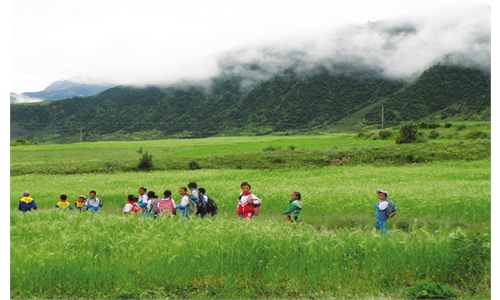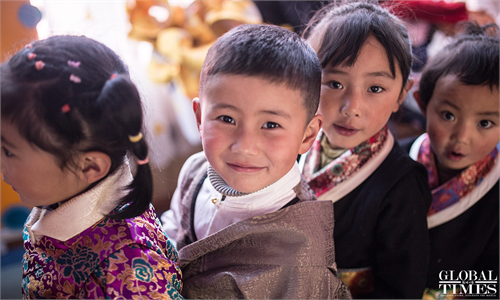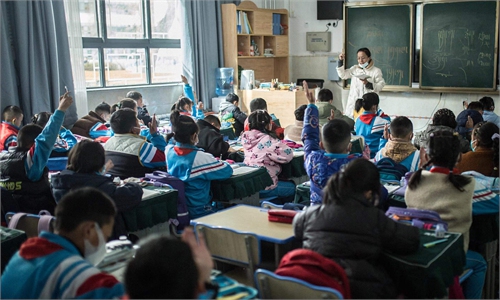ARTS / CULTURE & LEISURE
TV series marks 64th year of end to Xizang serfdom

Photo: Xinhua
Monday marked the 64th anniversary of the Xizang Autonomous Region's liberation of 1 million serfs. A few days ago, the first episode of a short video series about this event, Red Memory: Red Land, was released online, according to a report from the Xinhua News Agency.
The first episode tells the story of how the 400 serfs at the Khesum Manor acquired land and chose their first Party secretary through a vote during Xizang's Democratic Reform in 1959.
Before 1959, Xizang was ruled by a theocratic system of feudal serfdom. The people of the Khesum Manor in Shannan, Xizang lived a miserable life without enough food and clothing.
Khesum Drolma, 65, is a farmer whose family has lived in Khesum village all their lives. After she was born in a cowshed, she became a "living instrument" for her serf owner.
On March 28, 1959, the Chinese central government decided to completely abolish the system of feudal serfdom under theocracy, constituting an epoch-making change in the social progress of Xizang and its development of human rights.
In July that year, all serfs obtained the land that generations of their families had longed for. Serfs, who accounted for more than 95 percent of Xizang's population back then, obtained their personal liberty.
"My mom and I no longer lived in the cowshed, and all livestock, and houses were distributed to us, which I couldn't believe," Khesum Drolma said.
In December 1959, Xizang's first Party secretary was selected in Khesum. Under the secretary's leadership, the local people started to plant crops, build canals and open night schools, finally becoming their own masters. Khesum Drolma also went to school like other children of her age.
After China's reform and opening-up in 1979, great changes have taken place in the village with Party members taking the lead in its development. Now there are 168 Party members in 12 branches and they are the backbone of efforts to build a moderately prosperous society.
Kangdro, the current village Party secretary, said that since the 18th Party Congress in 2012, the central government has invested 40 million yuan ($5.81 million) in Khesum village to build highways, install road lights and plant trees as well as construct a service center and a library. In 2017, all households in the village were lifted from poverty. By the end of 2020, the per capita annual income reached 30,000 yuan.
According to the 14th Five-year Plan (2021-25), the central government will invest 601.5 billion yuan to improve infrastructure, ensure people's livelihoods, protect the environment and develop distinctive industries in order to support the high-quality economic and social development of Xizang, according to the Xinhua report.
"Only the leadership of the Communist Party of China, the socialist system with Chinese characteristics and the system of regional ethnic autonomy can provide a fundamental guarantee for Xizang's lasting peace, stability, prosperity and development," said an expert at the Tibetology Research Center.



